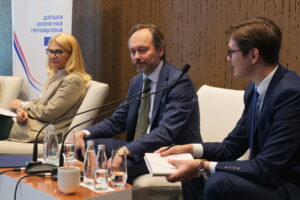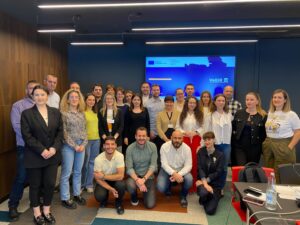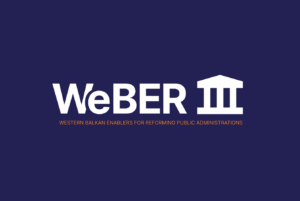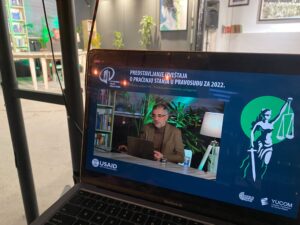Headquarters: Svetog Nauma 7, 11000
Office address: Đorđa Vajferta 13, 11000
Phone:: +381 11 4529 323
The role of IPA III in reducing the socio-economic gap between the Western Balkans and the EU
4 March 2022 – The most significant difference between IPA III and previous instruments for pre-accession assistance is that the European Union has realised the weaknesses of previous processes, said Nicola Bertolini, Head of Cooperation at the EU Delegation to Serbia, at the event Narrowing the economic gap between the EU and Western Balkans: IPA III in focus, which was organised today by the European Policy Centre (CEP), in cooperation with the EU Delegation to Serbia. Bertolini pointed out that the emphasis of IPA III, unlike previous IPA programs, is on how a specific country performs and that there are no predetermined funds for individual countries. Still, each country must show the maturity to allocate and implement IPA funds. Bertolini also highlited that states in the region must work to understand the needs of citizens, speak their language, and understand their needs to address them. Civil society has one of the critical roles in this regard.
Jelena Stojović, Consultant from NALED, former State Secretary in the Ministry of Finance, who from 2016-2018 managed EU pre-accession funds in the capacity of National Approving Officer, said that one of the problems in the implementation of IPA I and IPA II was a significant brain drain and an insufficiently good staff retention policy in state institutions, which meant a lack of qualified and trained staff who were able to use the funds that were fully allocated to Serbia.
Stojović pointed out that the gap between the countries of the Western Balkans and EU members is not decreasing but increasing, but that now, through IPA III and the Economic Investment Plan, opportunities that did not exist before have been provided.
“The competitive nature of IPA III allows competition in using funds. However, states should work on developing human capacities and serious projects to achieve this.” Developing project ideas and turning them into mature and good project proposals is necessary. For that, we need training of people and institutions,” Stojović said.
The Executive Director of CEP, Ranka Miljenović, underlines that IPA III emphasises all relevant actors, including civil society, which must be involved in programming, monitoring the implementation of IPA projects in order to hold the government accountable for their results. Miljenović reminded that civil society was last involved and consulted in 2017. However, that was more formal than substantive. Miljenović reminded us that civil society organisations were previously included in the process at the very end, when the projects had already been selected and when it was too late for them to contribute.
“Civil society has the capacity and expertise to work on the programming and implementation of the various ‘windows’ specified by IPA III – not only in the area of the rule of law. “Civil society can help in all areas, and the Government should use our expertise and knowledge to implement projects more effectively,” said Miljenović.
The discussion is part of a series of debates that the EU Delegation organises with the CEP, aiming to bring topics related to the EU accession process closer to citizens and allow them to discuss them themselves. The events are open to the media and the interested public.




